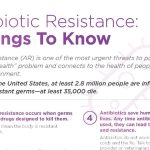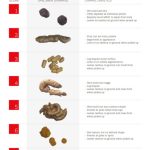Are you tired of constantly running to the bathroom? Do you find yourself worried about what could be causing your sudden onset of diarrhea?
Cause of Diarrhea: Bacteria
Diarrhea is a common and often frustrating issue that can disrupt our daily lives. While there are many potential causes of diarrhea, bacteria-related cases are some of the most concerning. In this blog post, we’ll delve into the world of bacteria-caused diarrhea, exploring what triggers it, how to prevent it, and what you can do to alleviate symptoms.
The Bacteria Connection
Bacterial diarrhea is caused by an imbalance in your gut microbiome. This occurs when harmful bacteria overgrow and outcompete the good bacteria that normally live in harmony with each other. Some common culprits include:
- E. coli
- Salmonella
- Campylobacter
- Shigella
The symptoms of bacterial diarrhea are often severe and can include:
- Frequent, urgent bowel movements
- Bloody or watery stools
- Abdominal cramps
- Fever
- Nausea and vomiting
In our next section, we’ll explore some of the risk factors that contribute to bacterial diarrhea. Whether you’re looking for ways to prevent it or seeking relief from a current bout, understanding these factors is crucial in taking control of your digestive health.
Now that we’ve explored the basics of bacteria-caused diarrhea, let’s dive deeper into the risk factors that contribute to this condition.
Risk Factors for Bacterial Diarrhea
The following factors can increase your chances of developing bacterial diarrhea:
- Unhygienic Food Handling**: Consuming food or drinks that have come into contact with contaminated surfaces, utensils, or handlers can spread bacteria like Salmonella and E. coli.
- Poor Hygiene Practices**: Failing to wash your hands regularly, especially after using the bathroom or before handling food, can allow bacteria to transfer from your hands to your mouth.
- Contaminated Water**: Drinking water that has been contaminated with sewage or other pollutants can introduce harmful bacteria like Campylobacter and Shigella into your body.
- Poor Food Storage**: Allowing perishable foods to sit at room temperature for extended periods or not storing them properly in the refrigerator can create an environment conducive to bacterial growth.
- Travel Abroad**: Traveling to areas with poor sanitation and hygiene practices, such as underdeveloped countries, increases your risk of contracting bacterial diarrhea.
It’s essential to be aware of these risk factors and take steps to minimize your exposure. By practicing good hygiene, handling food safely, and avoiding contaminated water sources, you can significantly reduce your chances of developing bacterial diarrhea.
In our next section, we’ll explore some effective ways to alleviate the symptoms of bacterial diarrhea and promote a speedy recovery. From over-the-counter medications to natural remedies, we’ll cover it all.
Get Expert Medical Advice
If you’re concerned about causing diarrhea, we can connect you with a medical expert for personalized guidance.
Start chatSummary and Insights: Causing Diarrhea – Bacteria
Recap of Key Points
We’ve covered the basics of bacterial diarrhea, including its causes, symptoms, and potential risk factors. To recap:
- Bacterial diarrhea is caused by an imbalance in your gut microbiome.
- The main culprits behind this imbalance are harmful bacteria like E. coli, Salmonella, Campylobacter, and Shigella.
- Common symptoms of bacterial diarrhea include frequent, urgent bowel movements, bloody or watery stools, abdominal cramps, fever, nausea, and vomiting.
Final Insights
If you’re concerned about causing diarrhea due to bacteria, it’s essential to understand that prevention is key. By taking steps to maintain a healthy gut microbiome, you can reduce your risk of developing bacterial diarrhea. This includes:
- Eating a balanced diet rich in fiber and probiotics.
- Practicing good hygiene, such as washing your hands frequently and thoroughly.
- Avoiding contaminated food and water.
A Strong Conclusion
In conclusion, bacterial diarrhea is a common issue that can have severe consequences if left untreated. By understanding the causes, symptoms, and risk factors, you’re better equipped to take control of your digestive health and prevent future episodes. Remember, a healthy gut microbiome is key to maintaining overall well-being. So, take the necessary steps today to keep your gut happy and your body thriving!
Non-itchy rash on back and chest: Are you dealing with a mysterious rash that won’t go away? Don’t ignore it! Learn the most common causes of non-itchy rashes on your back and chest, and get expert advice on how to tackle them. Read more here!
Which of the following is not a function of the liver?: Think you know everything about your liver? Think again! In this fascinating article, we’ll take you on a journey to explore the incredible functions of your liver. But which one is NOT its job? Click here to find out!



